It’s the weekend, and after a busy school week, you finally decide to pay a visit to the mall. As you enter Sephora and peruse the store isles, you come across two girls, seemingly around the age of 11, giggling as they swatch shades of concealer. Across the room, you are surprised to see a mother fighting with her child over an expensive cream. You decide to open a lip gloss tester, curious to see how the glittery concoction appears on your skin—only to notice the damaged wand and used up product.
We all know the culprit for this: the Sephora kids.
In today’s world, seeing preteen girls, as early as age 8, going to Sephora and buying $80 face creams is a regular occurrence. Tiktok and other social media platforms bombard young girls with videos promoting the benefits of skincare, while fellow classmates also flaunt their wide range of Sephora products. With this growing culture surrounding these beauty products, many girls have begun to worry about their appearances at an increasingly early age. And while taking care of one’s skin is not necessarily a bad thing, the toxicity of the Sephora culture, which has prompted little girls to blindly follow beauty trends at the expense of their physical and emotional well-being, has become a massive problem.
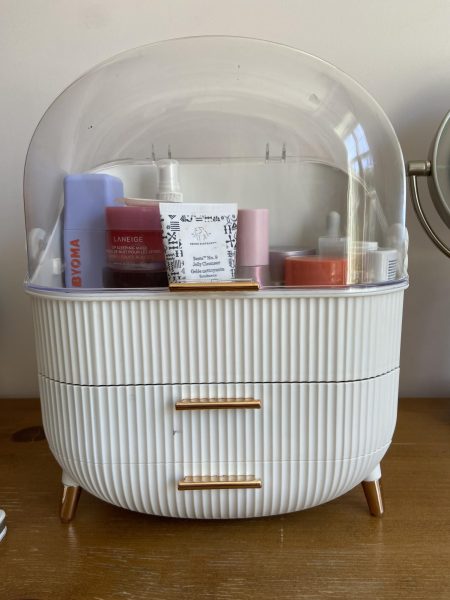
Instead of collecting the Shopkins or American Girl dolls of my generation, young girls today collect Sephora products. Bottles and bottles of skincare products and makeup line little girls’ dressers, a much sought after staple in their bedrooms. For many girls, having these products is something to be proud of; many of them have spent months collecting them, gaining inspiration from the latest TikTok trends.
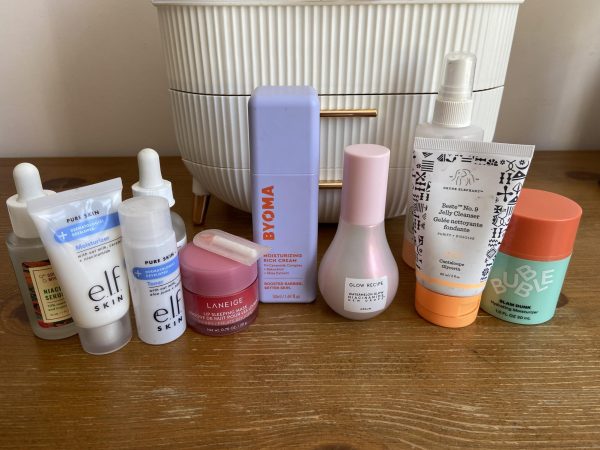
For me, a lot of this feels familiar; I can’t help but look back to when I was little girl. From Littlest PetShop, to Rainbow looms, to fidget spinners and slime, each year was a new beginning in the world of trends. I very clearly remember the excitement I would feel in the toy store, finally getting the toy I wanted. And then, in about two days, this rush would soon die down, and I’d be onto begging my parents for the next toy.
Evidently, the consumerist society we live in today has been targeting innocent kids for a while now. However, there is a real difference between the popular toys I grew up with and the Sephora products young girls are exposed to today. That difference is that they’re not toys; these are makeup and skincare products containing a variety of chemicals and ingredients meant for adult skin.
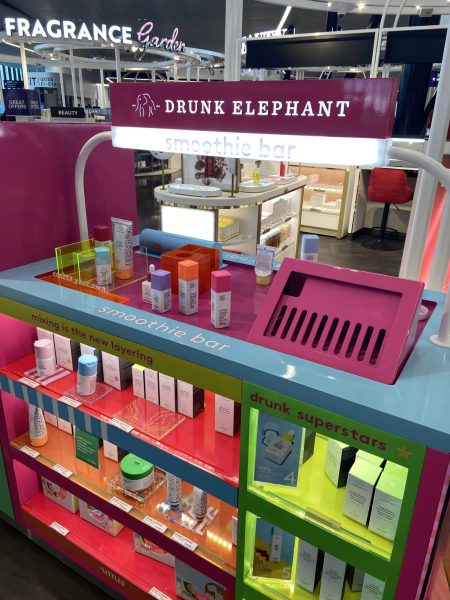
And yet, at first glance, it may not always seem that way. Walking into Sephora, I can see how it has managed to become the new Toys “R” Us for Generation Alpha. Drunk Elephant, for instance, is famous for their “skincare smoothies”, which involve mixing multiple colorfully packaged products into one. From Glow Recipe’s pink watermelon themed serums to Gisou’s signature lip oils, these are the types of sleek, shiny new products kids are attracted to. But at what cost?
From Glow Recipe’s $45 Pomegranate Peptide Firming Serum to Drunk Elephant’s famous $90 T.L.C. Framboos Glycolic Night Serum, many of these products are well beyond the price range for kids. The demand on parents to fund their kids’ extraordinary splurges, a common practice only facilitated by the “Sephora hauls” seen on social media, is unrealistic, placing parents in a precarious financial situation.
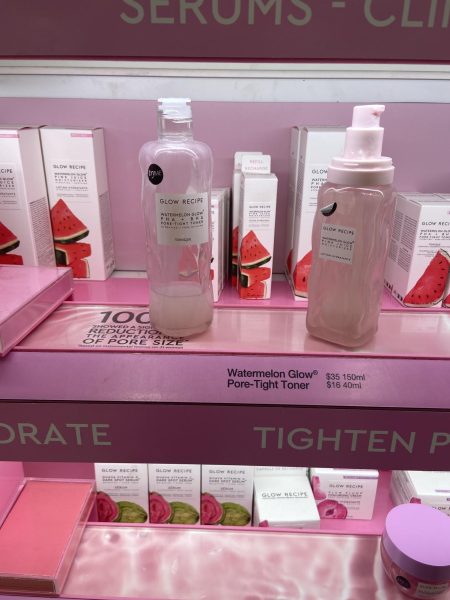
Not to mention, the pressure that comes with living up to this preppy, aesthetically pleasing image, can lead to serious self-esteem issues and anxiety. Watching all of these videos of older women—even child influencers their own age—talking about anti-aging, girls begin to worry about how they look, comparing themselves to people on social media who use filters and excessive amounts of makeup to alter their appearances.
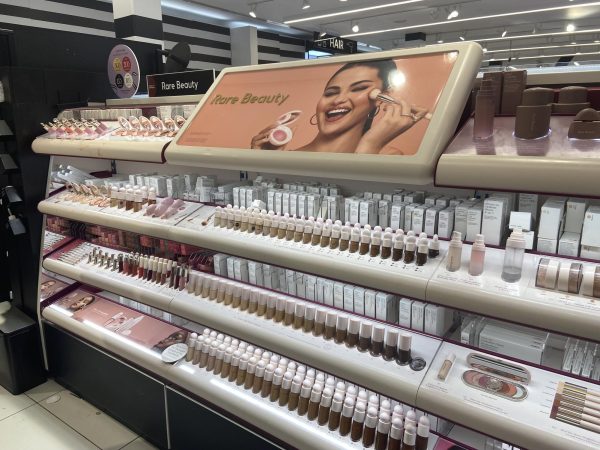
But do 10 year olds even need creams that contain salicylic acid, retinoids, and peptides?
The truth is, using anti-aging ingredients can damage young people’s sensitive skin. In an article by USA Today, dermatologist Dr. Brooke Jeffy recalls an instance where an 11 year old patient came in with a rash around her eyes after using retinol in her skincare routine. These occurrences are alarming; kids should not be using these adult products, especially if they don’t even need them. If anything, these girls need to embrace their natural beauty just the way it is, and enjoy their clear, smooth skin while they have it.
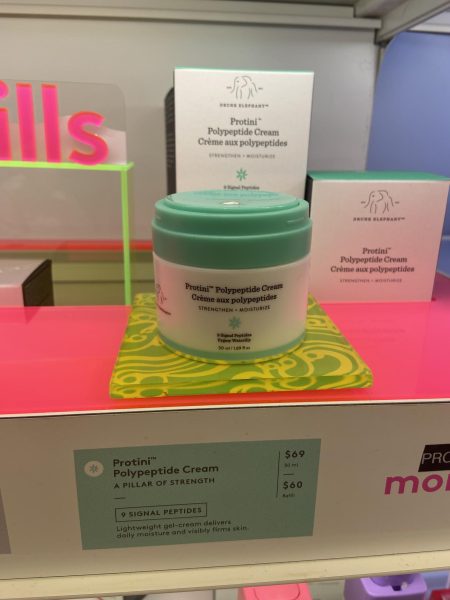
Still, the increased popularity of make-up and skincare products has marked a shift in our culture, one in which kids feel the need to grow up faster. Instead of enjoying their preteen years for what they are—carefree, fun, and full of silly mistakes and awkward situations—kids are brushing past all of this and jumping straight to adulthood. They are feeling pressured to act like grownups, buying expensive, anti-aging skincare, and then reciting the benefits of said skincare. Sephora, once meant for adults, has now become the go-to store for these young girls.
This twisted view of the world is the result of the Sephora kid trend. Though customers and Sephora employees alike have expressed their concern over kids taking over Sephora stores—destroying testers, stealing products from their packaging, and generally being rude to everyone—the implications of this trend go way beyond that.
Though it is hard to pull young girls away from this glitzy, toxic world, there are a plethora of ways for parents to take action, whether it be keeping their kids away from social media, or taking the time to research the products their kids wish to buy. Parents should offer their kids alternatives to the popular skincare that they want so that they do not feel left out. Instead of buying them that expensive anti-aging cream, opt for CeraVe SPF 50 moisturizing lotion. Instead of getting them that overpriced Dior lip oil, why not buy them that equally popular, yet cheaper one by Gisou?
Above all, parents and older siblings alike should do everything they can to encourage kids to do what they know best—how to be kids.

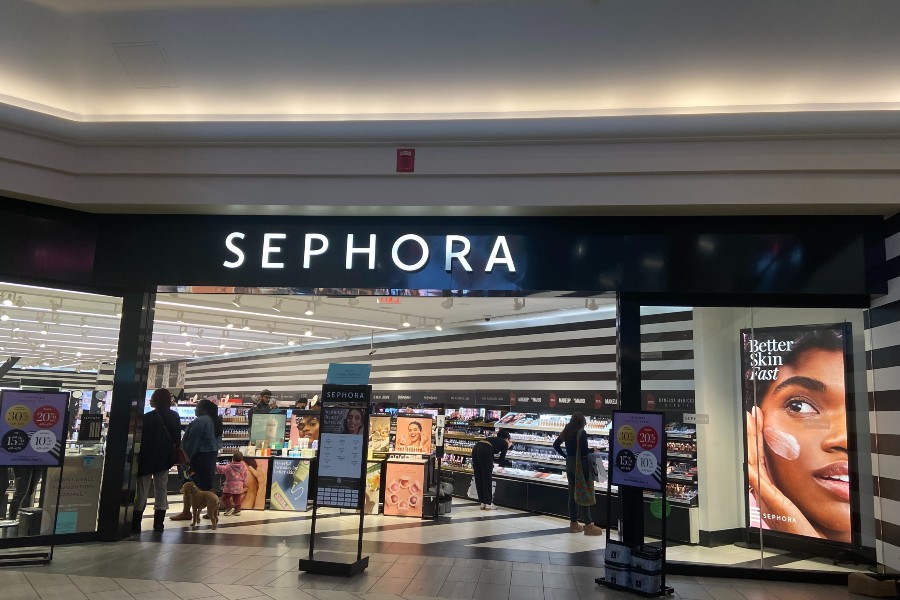
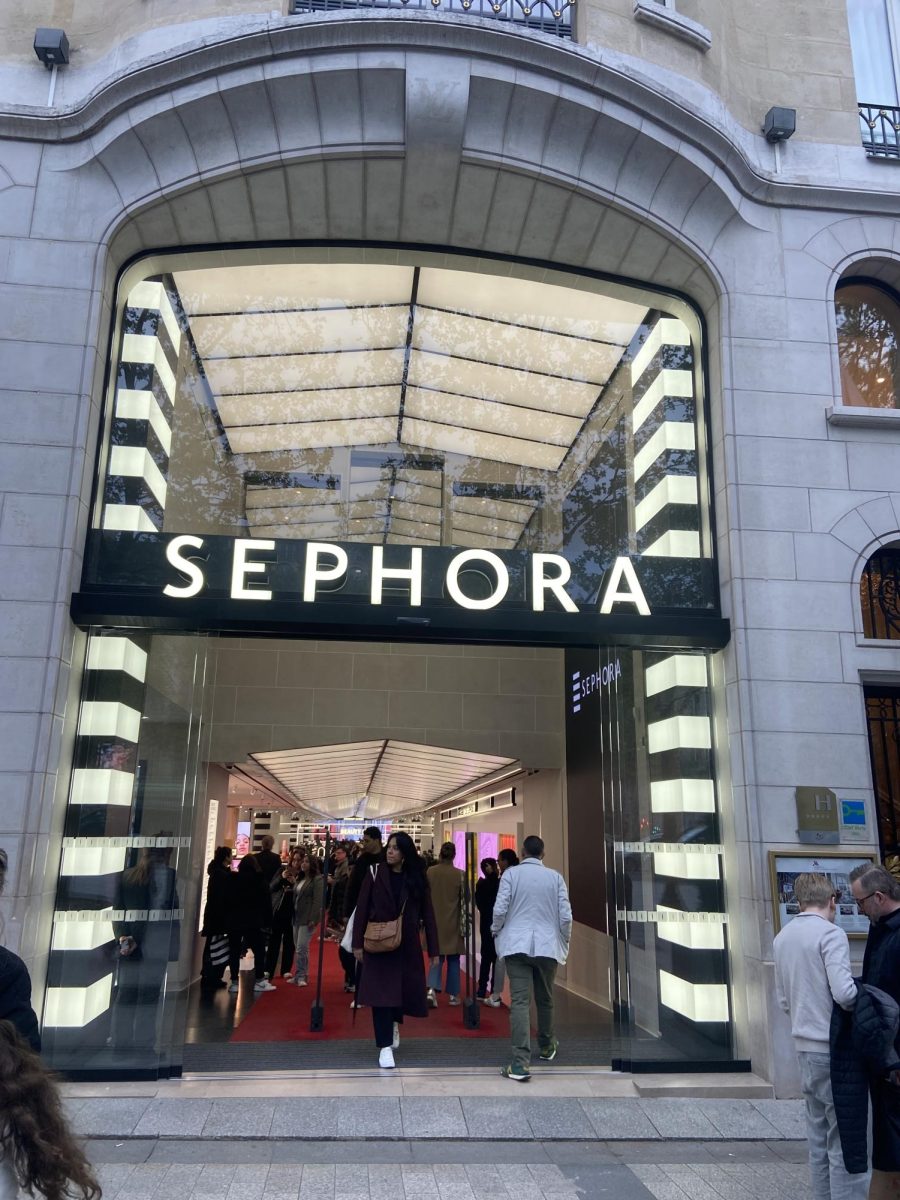
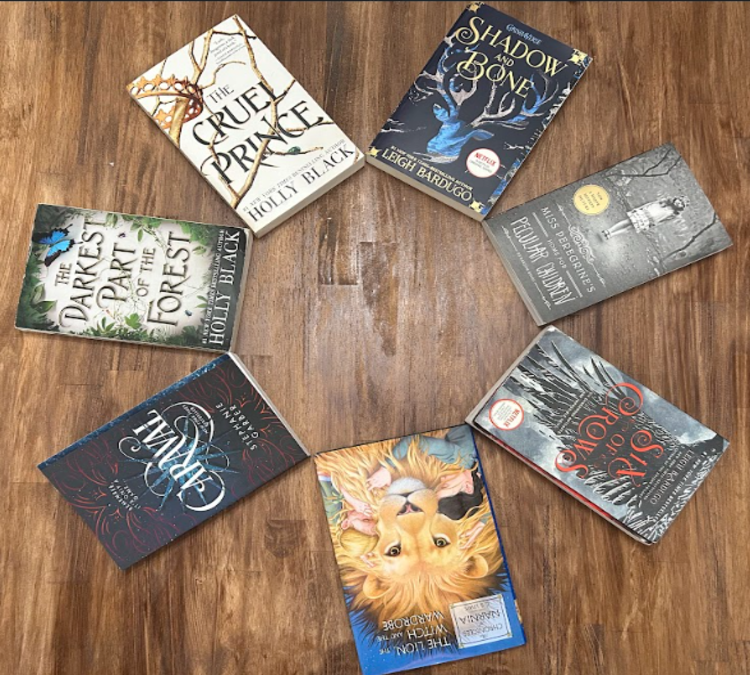


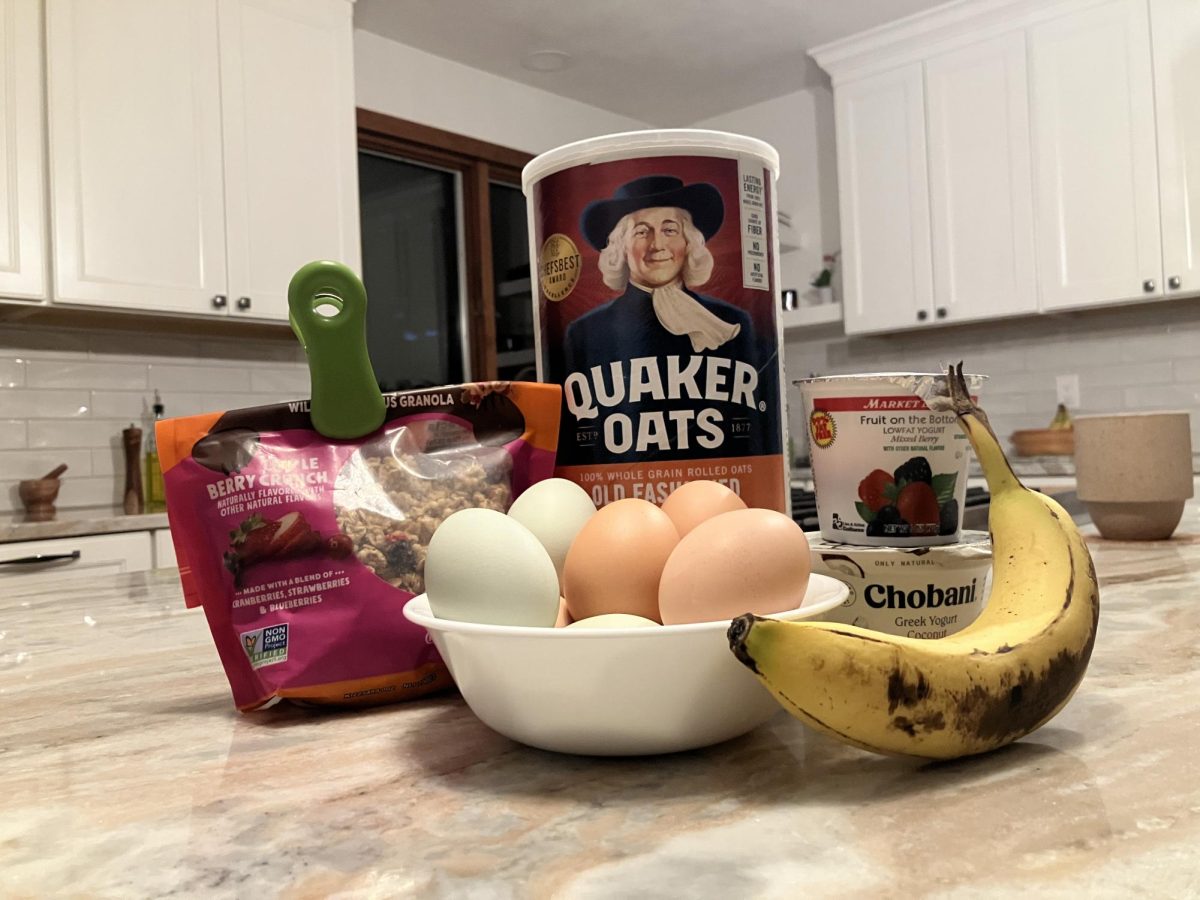

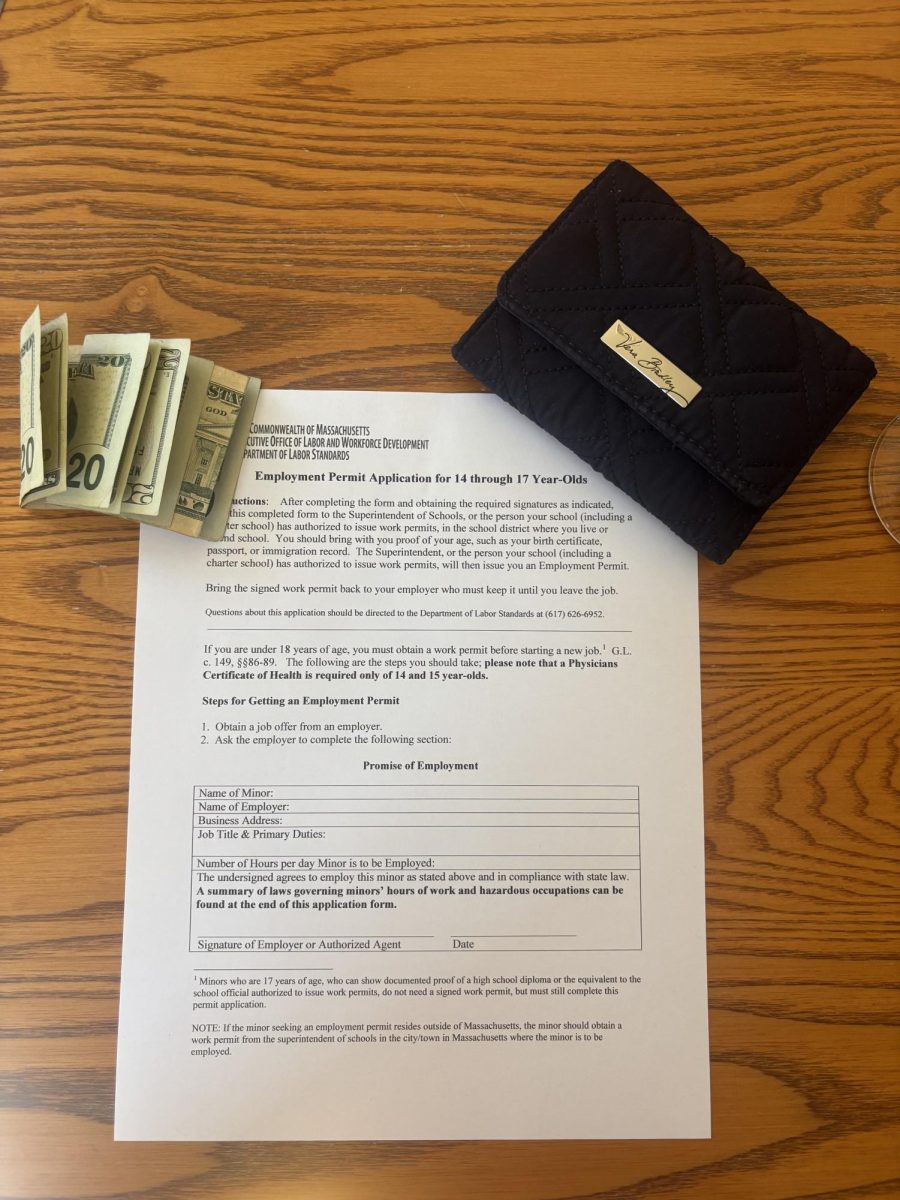

Ana • May 14, 2024 at 8:46 pm
Bravo! Your piece was both well-written and insightful. It’s truly disheartening to see young girls caught in the allure of Sephora cosmetics.
Buvana • May 12, 2024 at 8:50 am
Wonderful article…. Thanks for posting it… hope this helps the young kids in creating an awareness.